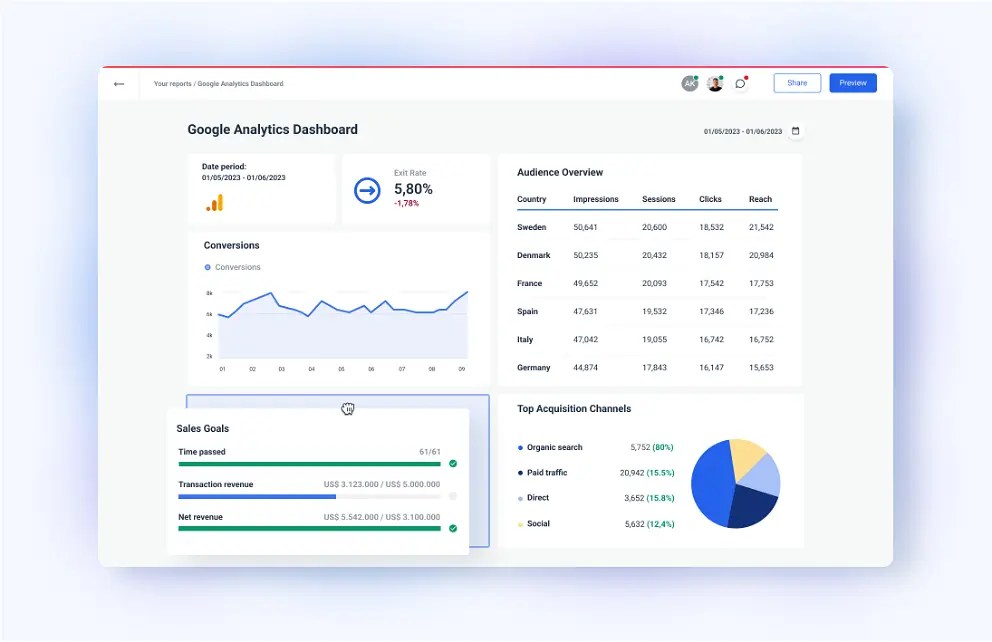Choosing the right hosting solution for your website is a critical decision that can impact its performance, security, and overall success. With numerous hosting options available, it’s essential to understand the different types, their features, and how they align with your specific website requirements. This introduction will provide an overview of the key considerations and factors to evaluate when selecting the optimal hosting solution for your website.
Understanding Hosting Types: Shared, VPS, Dedicated, and Cloud
Choosing the Right Hosting Solution for Your Website
Selecting the appropriate hosting solution is crucial for the success of your website. Understanding the different types of hosting available is essential to make an informed decision.
Shared Hosting
Shared hosting is the most basic and cost-effective option. Multiple websites share the same server, which means resources are allocated among them. This can lead to performance issues during peak traffic times. However, shared hosting is suitable for small websites with low traffic.
VPS (Virtual Private Server) Hosting
VPS hosting provides a dedicated virtual server within a shared physical server. This offers more control and resources than shared hosting, allowing for better performance and security. VPS hosting is ideal for websites with moderate traffic and specific resource requirements.
Dedicated Hosting
Dedicated hosting provides exclusive access to a physical server. This offers the highest level of control, performance, and security. Dedicated hosting is suitable for high-traffic websites, e-commerce platforms, and applications that require significant resources.
Cloud Hosting
Cloud hosting utilizes a network of interconnected servers to provide scalable and flexible hosting. Resources are allocated on demand, allowing websites to handle sudden traffic spikes. Cloud hosting is ideal for websites with unpredictable traffic patterns or those that require high availability.
Factors to Consider
When choosing a hosting solution, consider the following factors:
- Traffic volume: Estimate the number of visitors your website will receive.
- Resource requirements: Determine the amount of storage, bandwidth, and processing power needed.
- Security: Assess the level of security required to protect your website and data.
- Scalability: Consider the potential for future growth and the ability to scale your hosting solution accordingly.
- Cost: Determine the budget available for hosting and compare the costs of different options.
Conclusion
Choosing the right hosting solution is essential for the performance, security, and scalability of your website. By understanding the different types of hosting available and considering the factors discussed above, you can make an informed decision that meets the specific needs of your website.
Factors to Consider: Traffic, Storage, Security, and Scalability
Choosing the Right Hosting Solution for Your Website
Selecting the optimal hosting solution for your website is crucial for ensuring its performance, security, and scalability. Several key factors must be considered to make an informed decision.
Traffic Volume
The amount of traffic your website receives directly impacts the hosting requirements. High-traffic websites need servers with ample bandwidth and processing power to handle the influx of visitors without experiencing slowdowns or outages.
Storage Capacity
The size of your website’s files, including images, videos, and databases, determines the storage space required. Choose a hosting provider that offers sufficient storage capacity to accommodate your current and future needs.
Security Measures
Website security is paramount to protect sensitive data and maintain user trust. Look for hosting providers that implement robust security measures, such as SSL encryption, firewalls, and malware scanning, to safeguard your website from cyber threats.
Scalability
As your website grows, it may require additional resources to maintain optimal performance. Choose a hosting solution that allows for easy scalability, enabling you to upgrade your server capacity as needed without disrupting your website’s operation.
Additional Considerations
Beyond these core factors, consider the following:
- Uptime Guarantee: Ensure the hosting provider offers a high uptime guarantee to minimize website downtime.
- Customer Support: Choose a provider with responsive and knowledgeable customer support to assist you with any technical issues.
- Control Panel: Select a hosting solution with a user-friendly control panel that allows you to manage your website and hosting settings easily.
- Cost: Determine your budget and compare the pricing plans offered by different hosting providers.
Conclusion
Choosing the right hosting solution is essential for the success of your website. By carefully considering the factors discussed above, you can select a provider that meets your specific requirements and ensures your website’s optimal performance, security, and scalability. Remember to regularly monitor your website’s performance and adjust your hosting solution as needed to accommodate its growth and evolving needs.
Choosing the Right Provider: Reputation, Support, and Uptime
Choosing the Right Hosting Solution for Your Website: Reputation, Support, and Uptime
Selecting the optimal hosting solution for your website is crucial for ensuring its reliability, performance, and security. Among the key factors to consider are the provider’s reputation, support capabilities, and uptime guarantee.
Reputation
The reputation of a hosting provider is a testament to its reliability and customer satisfaction. Positive reviews and industry recognition indicate a provider’s commitment to delivering high-quality services. Research online forums, review websites, and industry publications to gather insights into the provider’s reputation.
Support
Exceptional support is essential for resolving technical issues promptly and efficiently. Look for providers that offer 24/7 support via multiple channels, such as phone, email, and live chat. The support team should be knowledgeable, responsive, and able to provide timely assistance.
Uptime
Uptime refers to the percentage of time that your website is accessible to visitors. A high uptime guarantee ensures that your website remains online and available to your audience. Aim for providers that offer an uptime guarantee of 99.9% or higher. This level of uptime minimizes downtime and ensures that your website is always accessible.
Additional Considerations
Beyond reputation, support, and uptime, there are other factors to consider when choosing a hosting solution. These include:
- Type of hosting: Choose between shared, VPS, dedicated, or cloud hosting based on your website’s traffic and resource requirements.
- Features: Consider the features offered by the provider, such as website builders, email hosting, and security measures.
- Pricing: Compare the pricing plans of different providers to find a solution that fits your budget.
- Scalability: Ensure that the hosting solution can accommodate your website’s growth and traffic fluctuations.
Choosing the right hosting solution is a critical decision that can impact the success of your website. By carefully considering the provider’s reputation, support capabilities, uptime guarantee, and other relevant factors, you can select a solution that meets your specific needs and ensures the reliability, performance, and security of your website.
Optimizing for Performance: Speed, Reliability, and Optimization
Choosing the Right Hosting Solution for Your Website
Selecting the optimal hosting solution is crucial for ensuring the performance, reliability, and optimization of your website. The type of hosting you choose will directly impact the speed, uptime, and overall user experience of your site.
Shared Hosting: A Budget-Friendly Option
Shared hosting is a cost-effective option for small websites with low traffic. Multiple websites share the same server resources, making it an affordable choice. However, this can also lead to performance issues during peak traffic times.
VPS Hosting: Enhanced Control and Flexibility
Virtual Private Server (VPS) hosting provides a dedicated virtual server within a shared physical server. This offers more control over resources and allows for customization of the server environment. VPS hosting is suitable for websites with moderate traffic and performance requirements.
Dedicated Hosting: Ultimate Performance and Security
Dedicated hosting allocates an entire physical server exclusively to your website. This provides the highest level of performance, security, and control. Dedicated hosting is ideal for high-traffic websites, e-commerce platforms, and applications that require specialized resources.
Cloud Hosting: Scalability and Flexibility
Cloud hosting utilizes a network of interconnected servers to host your website. This allows for automatic scaling of resources based on traffic demand, ensuring optimal performance even during surges. Cloud hosting is a flexible and cost-effective option for websites with fluctuating traffic patterns.
Managed Hosting: Peace of Mind
Managed hosting services provide comprehensive support and maintenance for your website. This includes server management, software updates, security monitoring, and performance optimization. Managed hosting is ideal for businesses that lack the technical expertise or time to manage their own hosting.
Factors to Consider
When choosing a hosting solution, consider the following factors:
- Traffic volume: Estimate the expected traffic to your website and choose a hosting plan that can handle the load.
- Performance requirements: Determine the speed and reliability requirements for your website.
- Security needs: Assess the sensitivity of your website’s data and choose a hosting provider with robust security measures.
- Scalability: Consider the potential for future growth and choose a hosting solution that can scale with your website’s needs.
- Support: Evaluate the level of support offered by the hosting provider and ensure it meets your requirements.
By carefully considering these factors and choosing the right hosting solution, you can optimize the performance, reliability, and overall user experience of your website.
Cost Considerations: Monthly Fees, Setup Costs, and Additional Expenses
Choosing the Right Hosting Solution for Your Website: Cost Considerations
When selecting a hosting solution for your website, it’s crucial to consider the financial implications. Understanding the various cost factors involved will help you make an informed decision that aligns with your budget and website requirements.
Monthly Fees
The most common cost associated with hosting is the monthly fee. This fee covers the ongoing maintenance, support, and infrastructure required to keep your website online. The cost can vary significantly depending on the type of hosting you choose, the provider, and the features included. Shared hosting, which involves sharing server resources with other websites, is typically the most affordable option. VPS (Virtual Private Server) hosting offers more dedicated resources and control, but comes with a higher monthly fee. Dedicated hosting, where you have exclusive use of a physical server, is the most expensive option but provides the highest level of performance and customization.
Setup Costs
In addition to monthly fees, you may also incur setup costs when signing up for a hosting service. These costs can include domain registration, SSL certificate installation, and website migration fees. Domain registration involves securing the unique address for your website, while an SSL certificate ensures secure data transmission. Website migration fees cover the cost of transferring your website from a previous host to your new provider.
Additional Expenses
Beyond the monthly fees and setup costs, there may be additional expenses associated with hosting your website. These expenses can include:
- Bandwidth: The amount of data transferred between your website and visitors. Exceeding your allocated bandwidth can result in additional charges.
- Storage: The amount of space required to store your website’s files, databases, and backups. Additional storage may be necessary as your website grows.
- Add-ons: Some hosting providers offer additional services such as website builders, email hosting, and security features. These add-ons can enhance your website’s functionality but may come with additional costs.
Evaluating Cost Considerations
When evaluating the cost of hosting solutions, it’s important to consider your website’s specific needs and budget. Shared hosting may be sufficient for small websites with low traffic, while VPS or dedicated hosting may be necessary for larger websites with high traffic or complex requirements. Additionally, factor in the potential for additional expenses such as bandwidth and storage.
By carefully considering the cost factors involved, you can choose a hosting solution that meets your website’s needs without breaking the bank. Remember to compare different providers and their pricing plans to find the best value for your money.
Choosing the right hosting solution for your website is crucial for its performance, reliability, and security. By considering factors such as website traffic, content type, budget, and technical requirements, you can select a hosting provider that aligns with your specific needs. Whether you opt for shared hosting, VPS hosting, dedicated hosting, or cloud hosting, ensure that the provider offers reliable uptime, adequate storage and bandwidth, and responsive customer support. By making an informed decision, you can optimize your website’s performance, enhance user experience, and ensure its long-term success.




